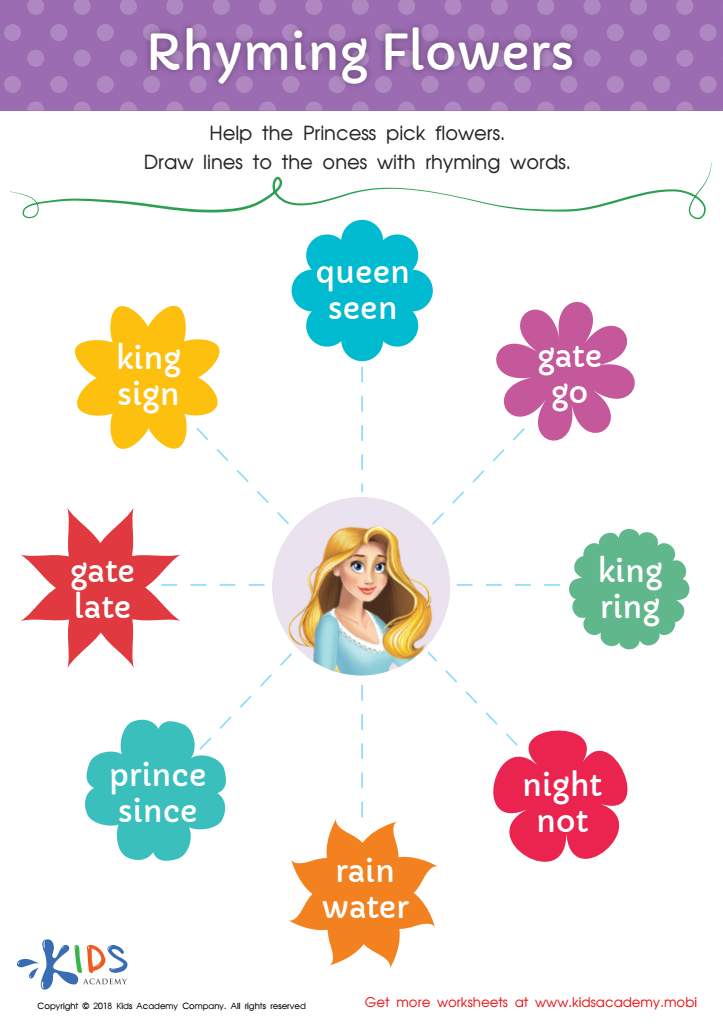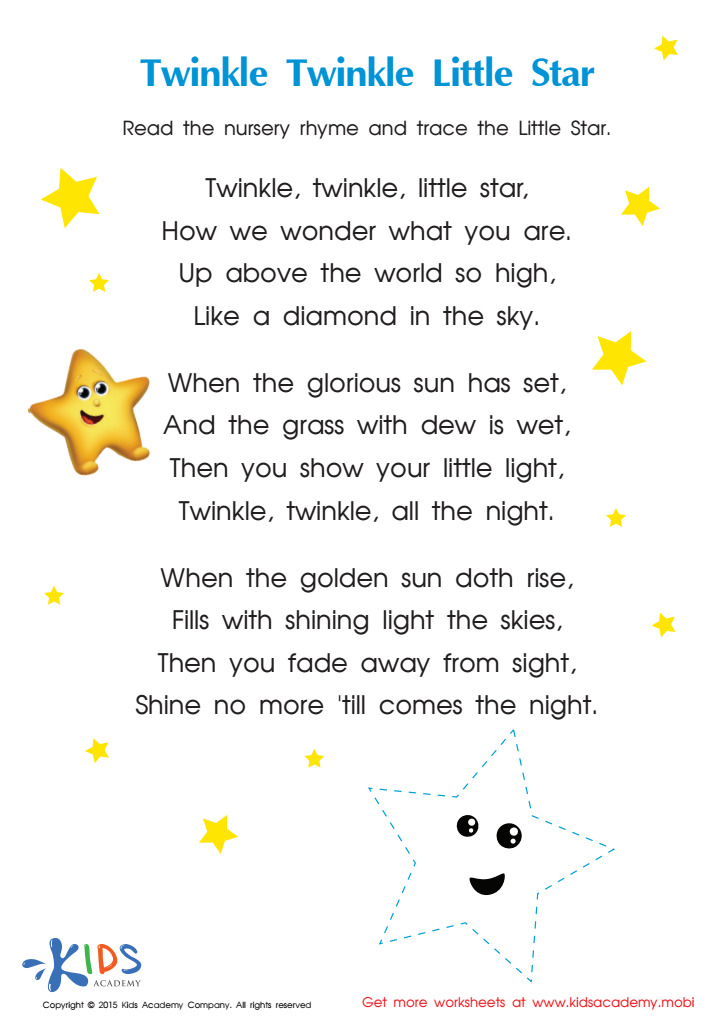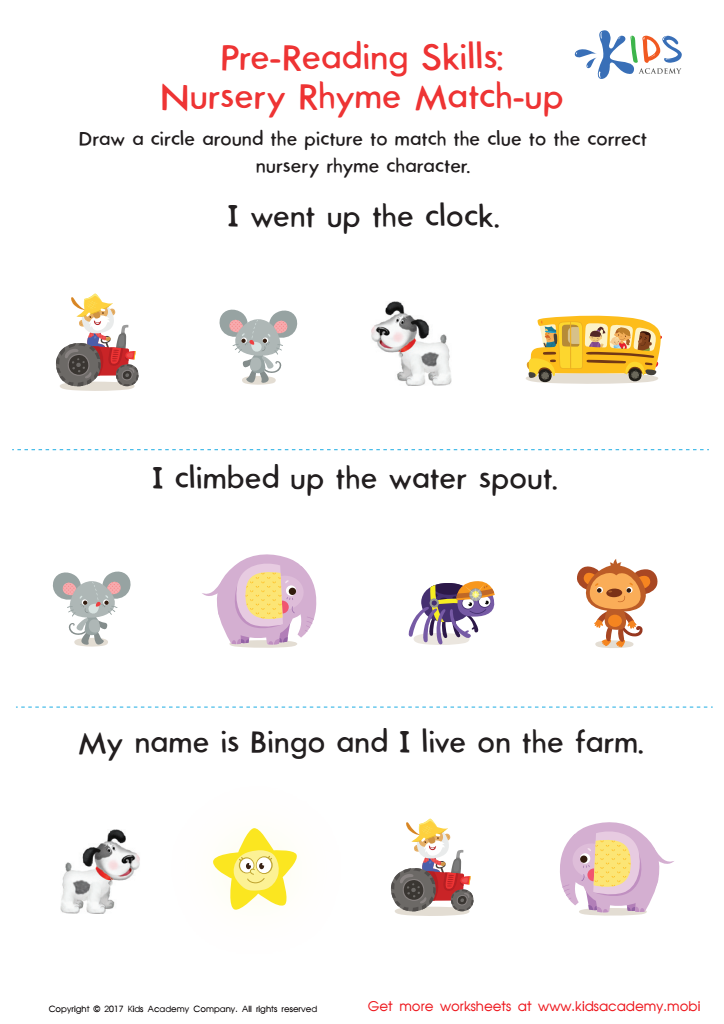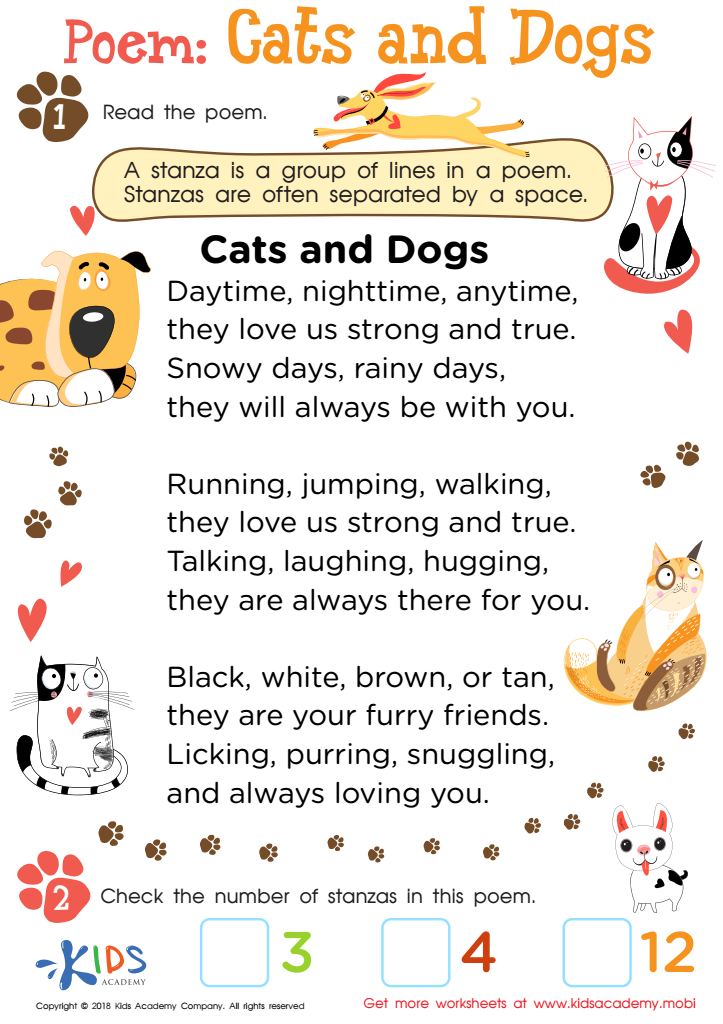Rhyme recognition Reading Worksheets for Ages 7-8
5 filtered results
-
From - To
Enhance your child's reading skills with our Rhyme Recognition Reading Worksheets for Ages 7-8! Designed to make learning fun and engaging, these worksheets help children identify and create rhyming words, boosting their phonemic awareness essential for fluent reading. Each activity features colorful illustrations and diverse exercises, enabling kids to build confidence in their reading abilities. Ideal for classroom use or at-home practice, our resources cater to varying skill levels, ensuring every child can thrive. Explore our wide selection of worksheets today and empower your young learner to master rhyme recognition while enjoying their reading journey!


Baa Baa Black Sheep Printable


Rhyming Flowers Worksheet


Nursery Rhymes: Twinkle Little Star Worksheet


Nursery Rhyme Match–Up Worksheet


Poem: Cats and Dogs Worksheet
Rhyme recognition is a vital component of early literacy development, especially for children aged 7-8. At this age, children are transitioning from learning to read to reading to learn, making proficiency in phonological skills essential. Recognizing and producing rhymes enhances phonemic awareness—the ability to hear, identify, and manipulate individual sounds in words—which is crucial for decoding new words and improving reading fluency.
Understanding rhyme aids in building a strong vocabulary and comprehension skills. When children can identify and create rhymes, they engage in playful language exploration, which helps maintain their interest in reading. This creative linguistic ability encourages children to think about sounds and structures creatively, fostering better overall communication skills.
Furthermore, parents and teachers can leverage rhyme recognition as an engaging activity to build confidence in reading. Through games, nursery rhymes, and interactive reading sessions, children can practice these skills in a fun and supportive environment, ultimately contributing to their academic growth.
Promoting rhyme recognition not only supports literacy development but also strengthens the bond between parents, teachers, and children, making reading a shared and enjoyable experience. Encouraging this skill lays the foundation for lifelong reading success and a love for literature.

 Assign to My Students
Assign to My Students




.jpg)











